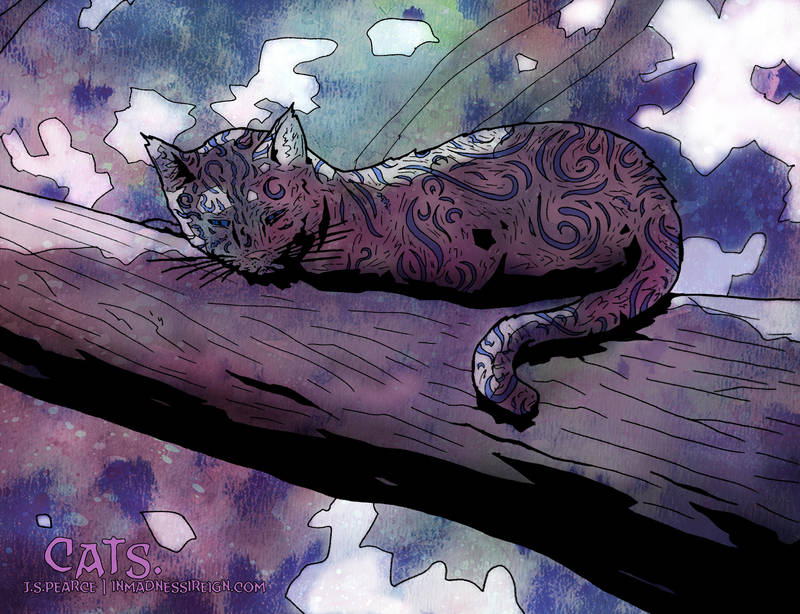 Going to write something smaller this week. Started working on a script for a comic, which required a bit of research on a variety of things. The inspiration for it is Stranger Things, Gravity Falls, and Hellboy. Something magical, cosmic horror and weird.
Going to write something smaller this week. Started working on a script for a comic, which required a bit of research on a variety of things. The inspiration for it is Stranger Things, Gravity Falls, and Hellboy. Something magical, cosmic horror and weird.Like going home. So, let me ramble on something I've been thinking about. Something about the nature of things like Stranger Things or the Dresden Files. That Urban Fantasy pastiche.
Where Do the Monsters Live?
There is this idea in Urban Fantasy stories. That they have to explain why monsters or fantastical elements remain hidden. How have monsters or magic not become observed by the modern world?Each story does its own take on this. Superhero stories use it as the basis for some heroes. Some stories have clandestine wizards and vampires living secret society lives. Others are dark things that have long slumbered that now have awakened.
Stranger Things, Twin Peaks, etc., do that. Horror loves dark alien things coming to life because someone went left instead of right. The explanation is "it has always been here but secret." It's still something the story sort explains to you. It makes sure to cover the plot hole with the best kind of plywood it can.
It's like how a lot of Science Fiction stories have to explain their faster-than-light travel. "Ships can't travel that fast" kills a lot of stories. Something has to go up to explain it away. If only to keep the plot hole wary from tripping over it.
If you get stuck on it or need an answer for it, there's a chance you've gone ahead and missed the forest for the trees here. Good stories make you never see the massive plot hole and good audiences know the hole is there. They aren't stupid. You cover it up when you have to or when it helps make the story better.
The best way I've handled this plot hole in stories is how I wrote them in my Noir Bedarte stories. That Necromancy exists, and it happens. That there is a young man wandering around, raising the dead. And everyone accepts it with a bit of a "huh."
The Just-Over-There
It isn't that there is a mystical thing blocking knowledge of it or some vast conspiracy. It's more like regular people in such fantastical settings themselves aren't fantastical. They have regular lives.They might not know about magic because, hell, most of us don't know what's going on with fashion in India. Or what the slang for potato is in Australia. They have lives to live and can't possibly know everything going in the world they live in. It's the world. Have you seen it? It's huge.
I like this kind of hand waving. Because it moves the explanation to some sort of blendy, mist-filled possible realm. A place called "just-over-there."
 Just-Over-There is the land you come into whenever you turn off the lights at night and look into a dark room. That moment when the hairs on the back of your neck stand up, looking in the dark, that's the Just-Over-There.
Just-Over-There is the land you come into whenever you turn off the lights at night and look into a dark room. That moment when the hairs on the back of your neck stand up, looking in the dark, that's the Just-Over-There. Or when you are in a new place, lost, and every building looks the same. That's the Just-Over-There too.
Or that dream you wake up from that was so real, so true you can't help but think you were awake. But instead, you wake up, wondering how you got back into your bed. That's the Just-Over-There again.
I think that Just-Over-There is a valid part of our imaginations. Like an evolutionary adaptation. People who could imagine potential danger lurking the dark outlived those who didn't. Fear and imagination. Primal things that still come through.
End Ramble
So that's one of the ideas I'm thinking of while writing this current comic script. Trying to imagine and fill out a setting. One that has fantastical elements that feel like they crept in from some corner that looks like our own.Oh and cats. Been doodling a bunch of cats for it too.
I do not know if I'll post it here. The current goal is to see if I can do a whole process of Script to Comic Page on my own. I've done both separately, never together.


